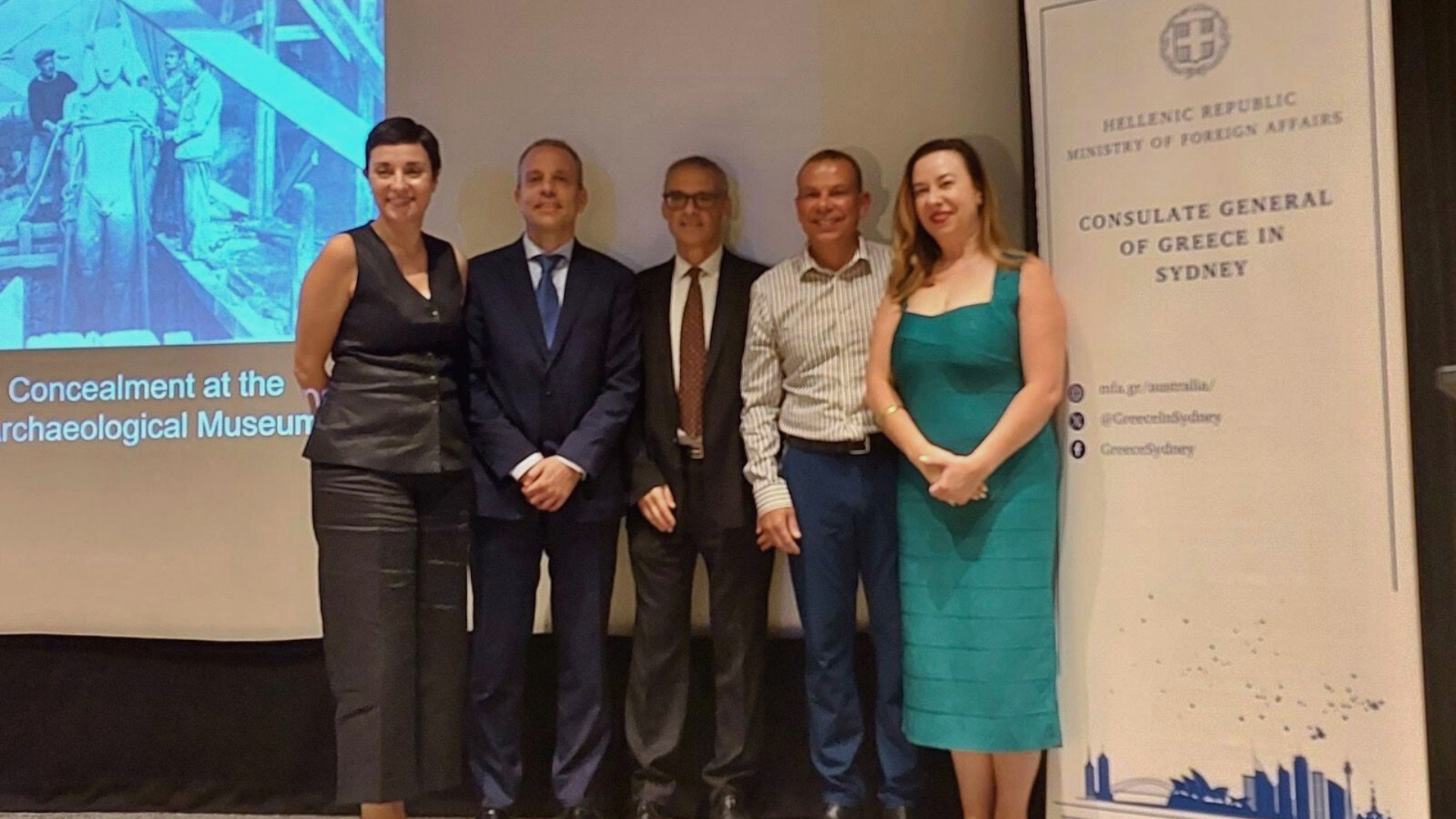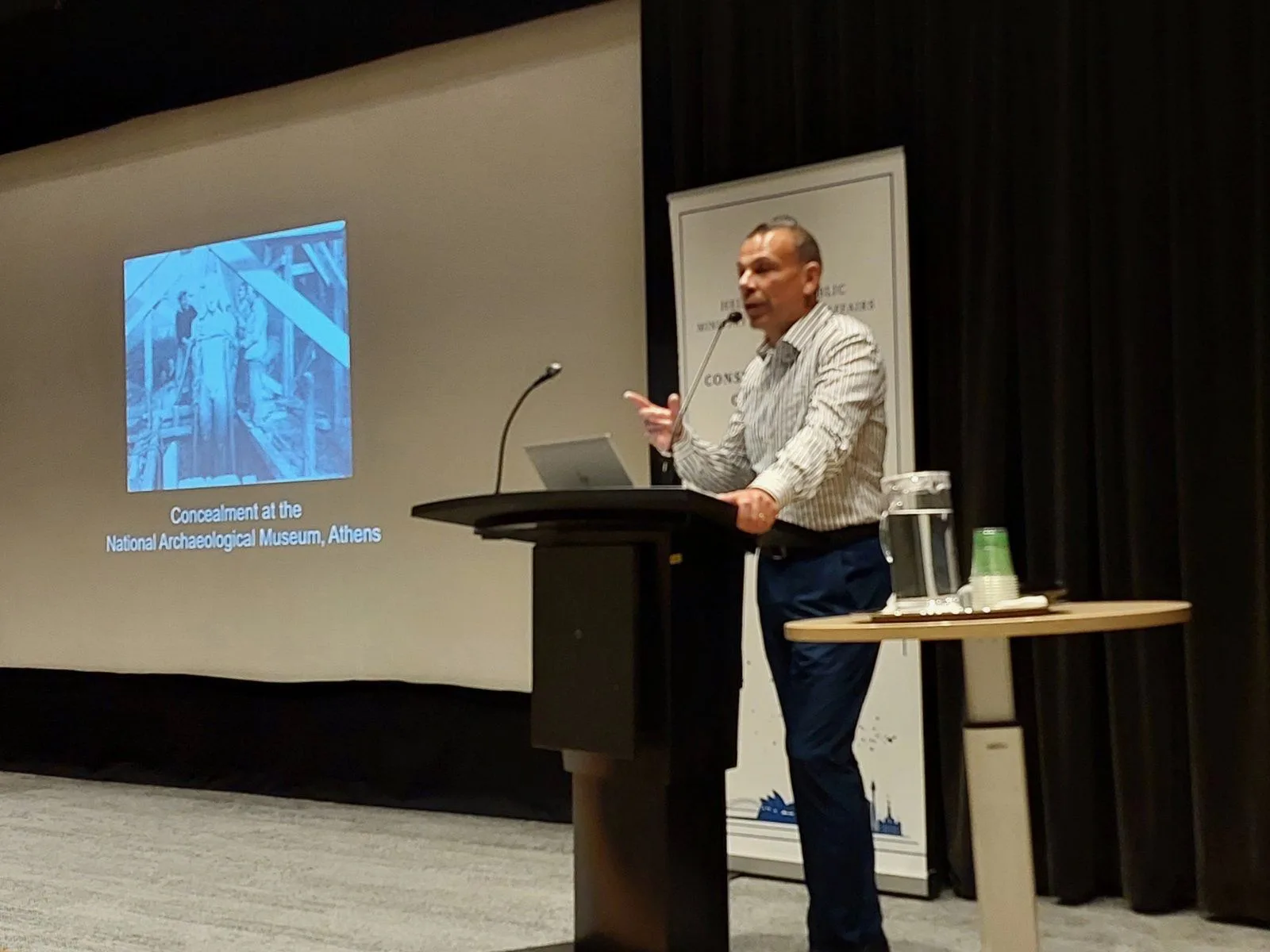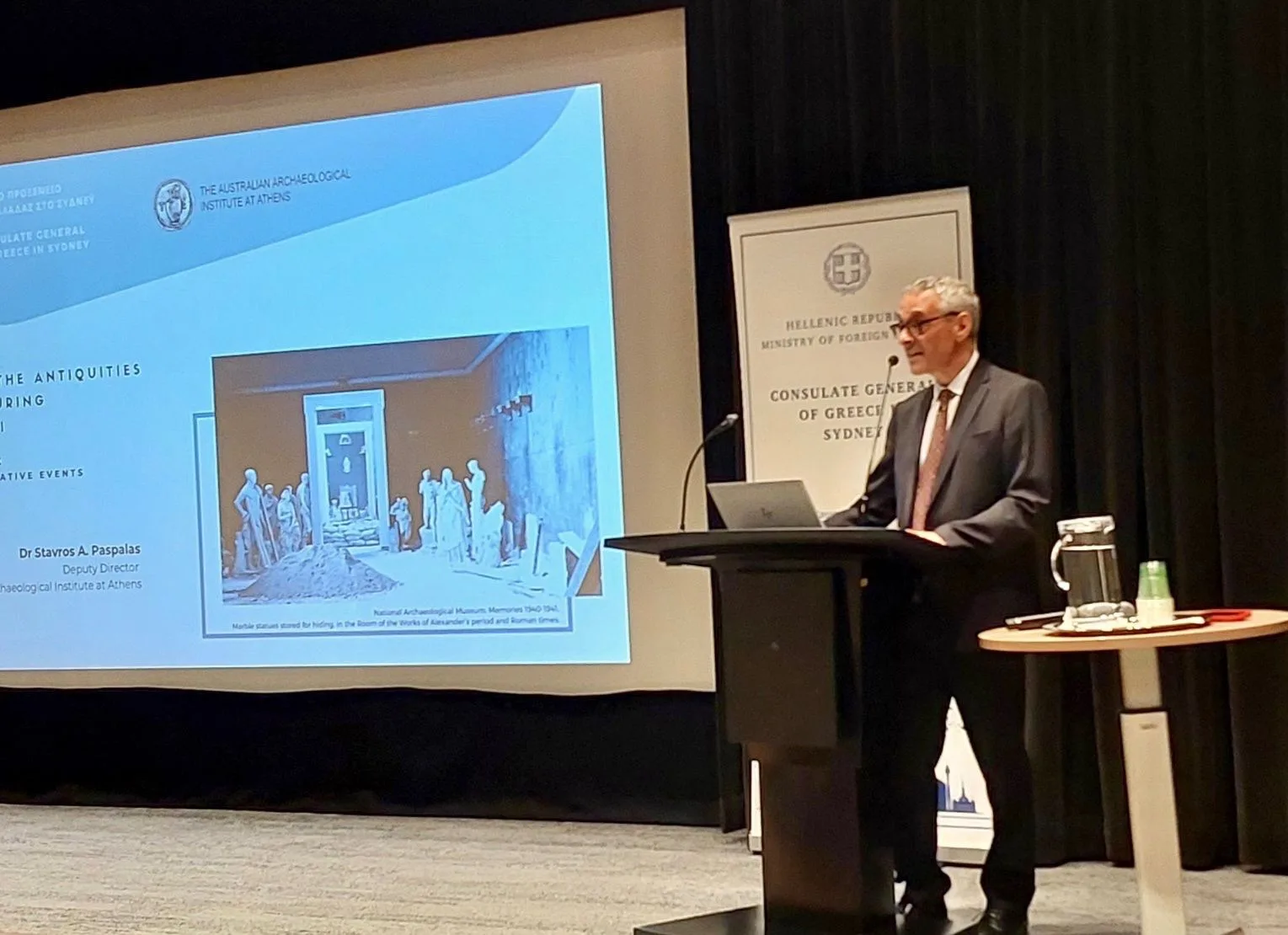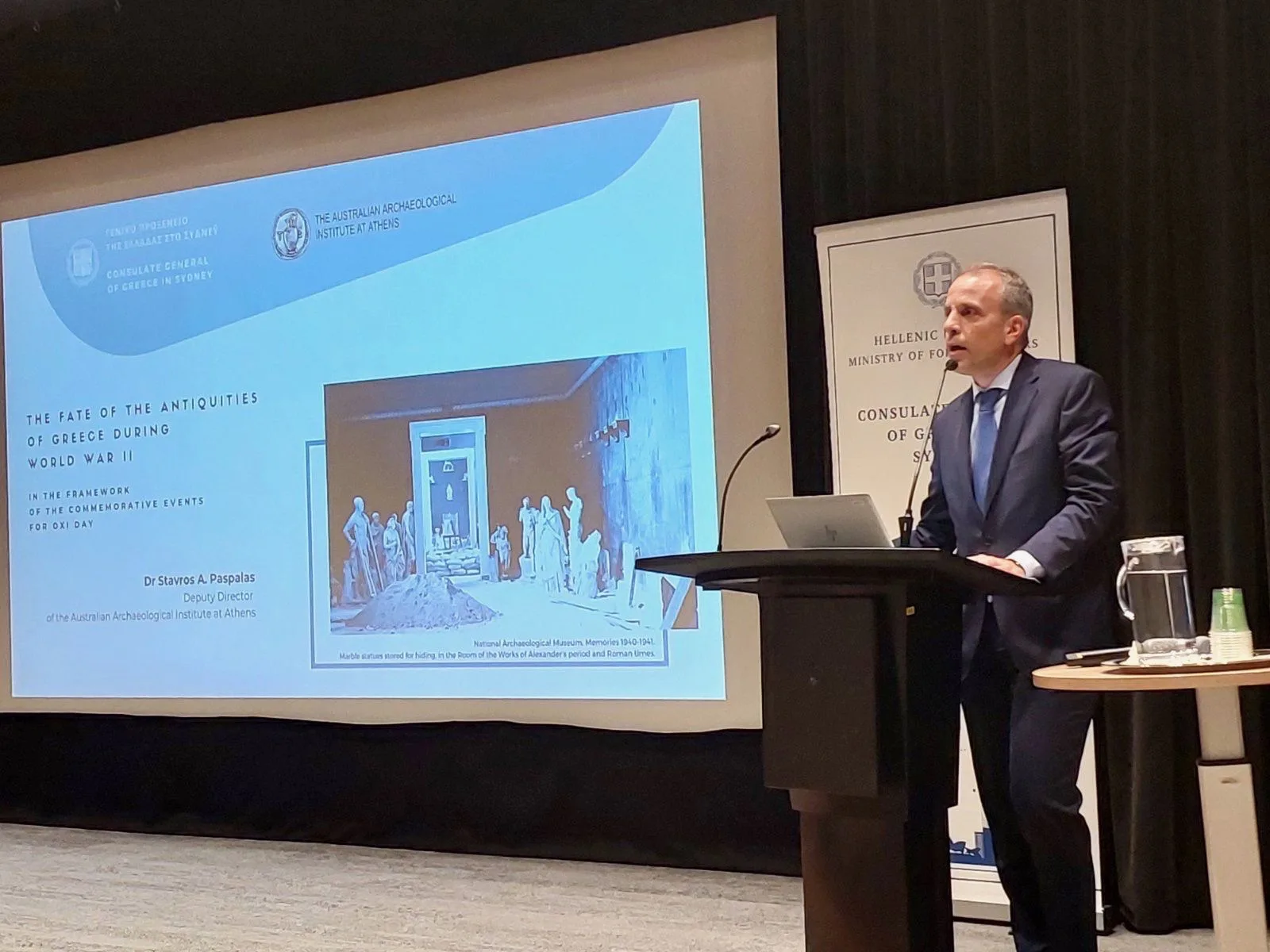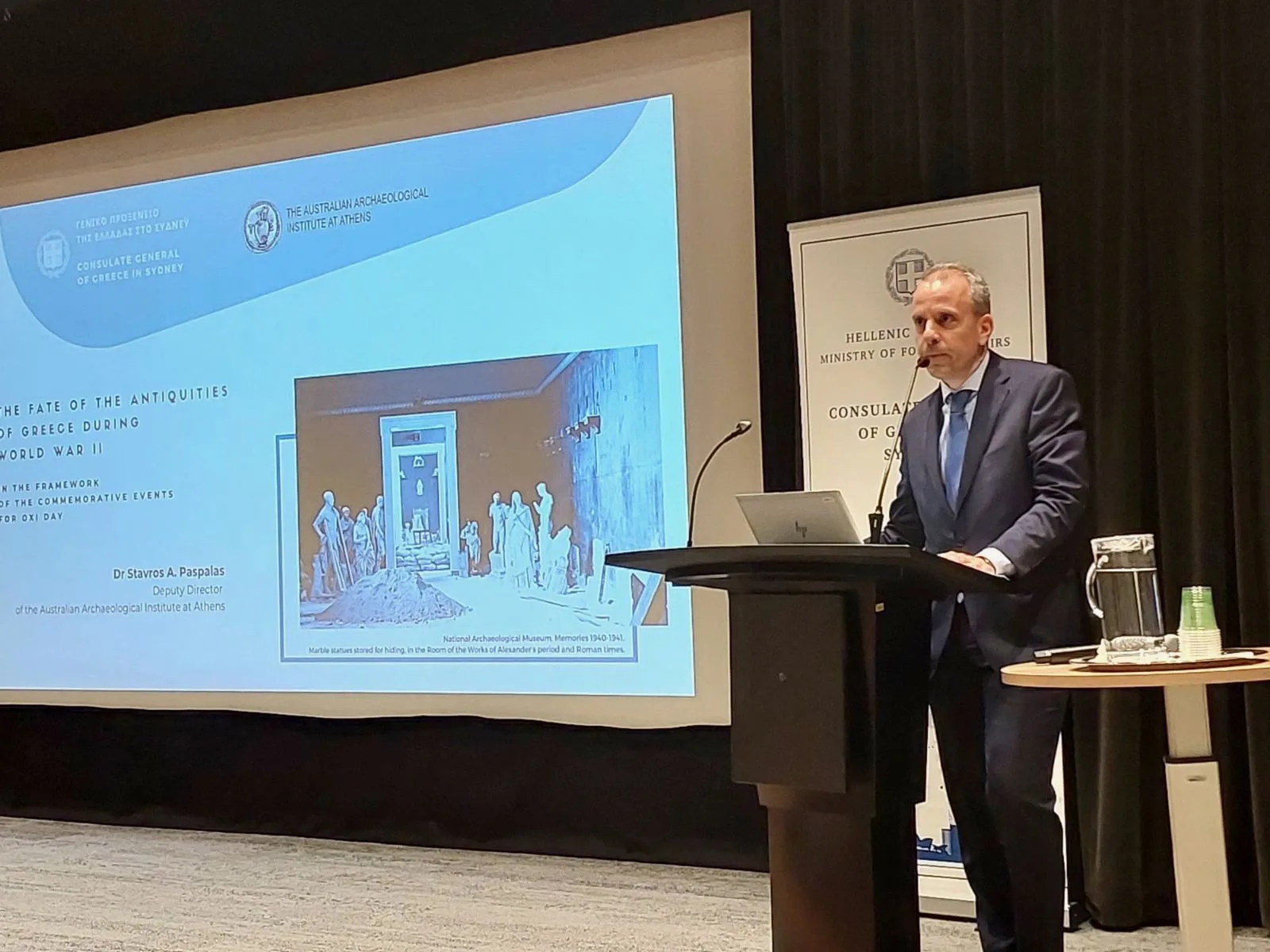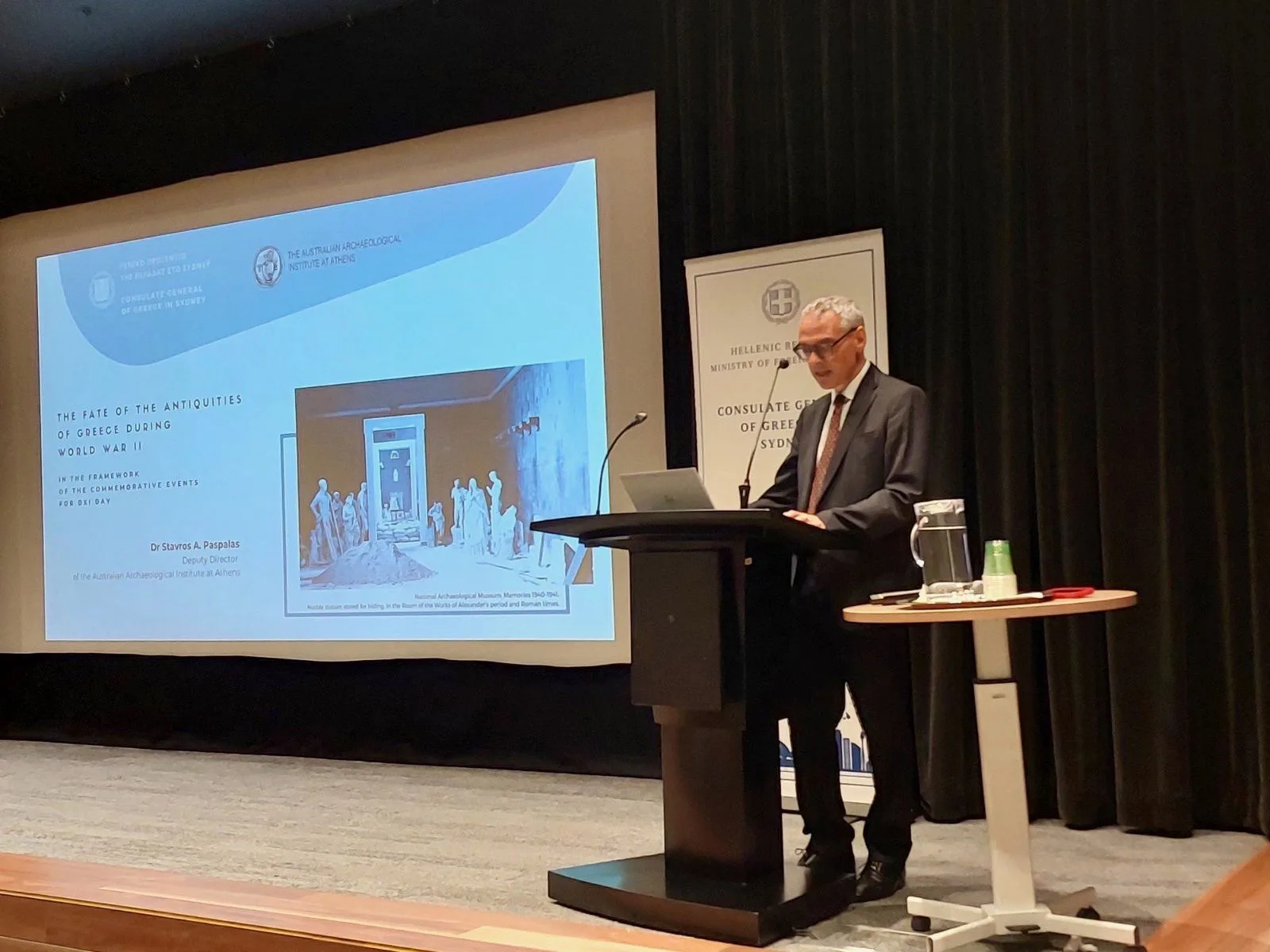The Consulate General of Greece in Sydney, in collaboration with the Australian Archaeological Institute at Athens, hosted a compelling lecture by Dr Stavros A. Paspalas titled The Fate of the Antiquities of Greece during World War II.
The event, part of the OXI Day commemorations, delved into a lesser-known chapter of Greek history, focusing on how the nation’s antiquities were impacted during the war.
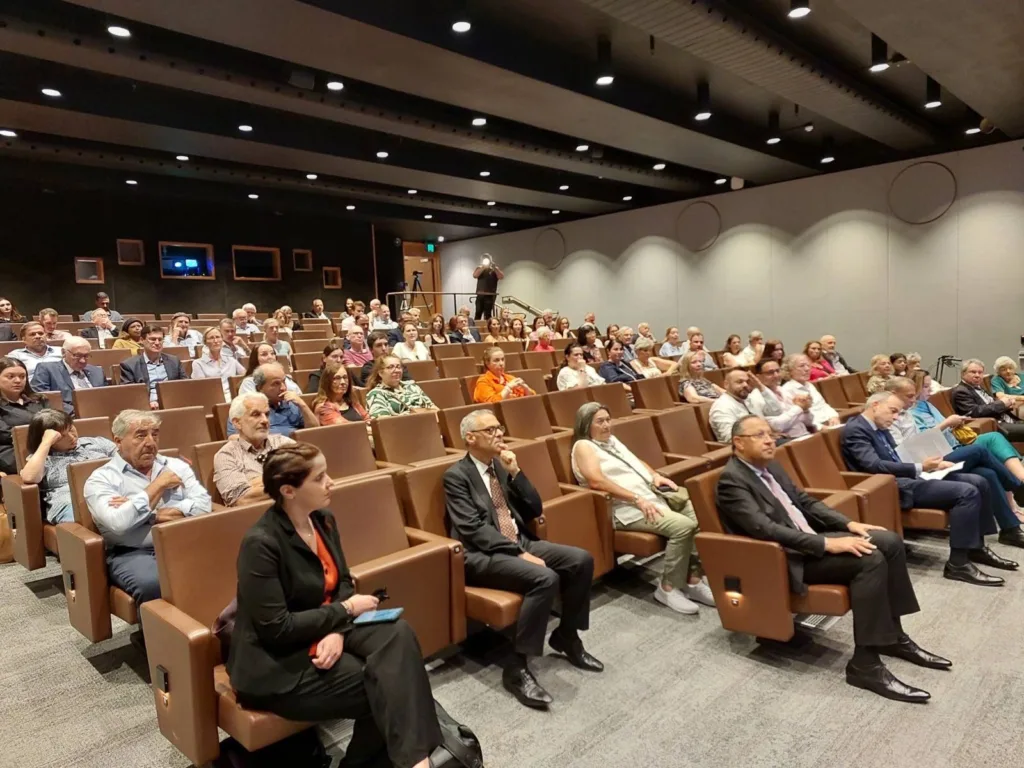
Dr Paspalas examined the treatment of Greece’s ancient and medieval treasures by occupying forces — German, Italian, and Bulgarian — and the role these artefacts played amidst the upheaval of war.
Through case studies, he explored the measures taken by Greek authorities to protect cultural heritage, the occupiers’ perceptions of Greece as the cradle of Western civilisation, and the symbolic significance antiquities held for Greeks during the Occupation.
The lecture offered an engaging narrative of loss, survival, and resilience, shedding light on the cultural stakes of wartime Greece.
The lecture was enriched by remarks from the Consul General of Greece in Sydney Ioannis Mallikourtis, who provided historical context on the significance of OXI Day, Greece’s refusal of Mussolini’s ultimatum on October 28, 1940.
Speaking to an audience that included dignitaries such as the Honourable Benjamin Franklin, President of the Legislative Council, the Honourable Mark Buttigieg MLC, and members of the Consular Corps, the Consul General emphasised the unbreakable bonds forged between Greeks and Australians during WWII.
In his speech, he highlighted the extraordinary efforts taken by the Greek state to protect its antiquities. Just days after war broke out, a Commission for the Protection of Antiquities was established. This body coordinated efforts to conceal treasures in crypts and underground shelters, often with the assistance of local workers, archaeologists, and even foreign volunteers. As a result, key sites like the National Archaeological Museum and the Parthenon Museum were emptied and their artefacts hidden, leaving the occupying forces frustrated in their search.
“The legacy of the Ancient Greeks is omnipresent in this country and state,” the Consul General remarked, drawing parallels between the Greek ideals of freedom and democracy and their influence on Australian life.
He thanked Dr Paspalas for his expertise and praised the unsung heroes who protected Greece’s cultural heritage during one of its darkest periods.
The event concluded with a heartfelt tribute to those who risked everything to safeguard Greece’s history, ensuring its legacy would endure for future generations.
